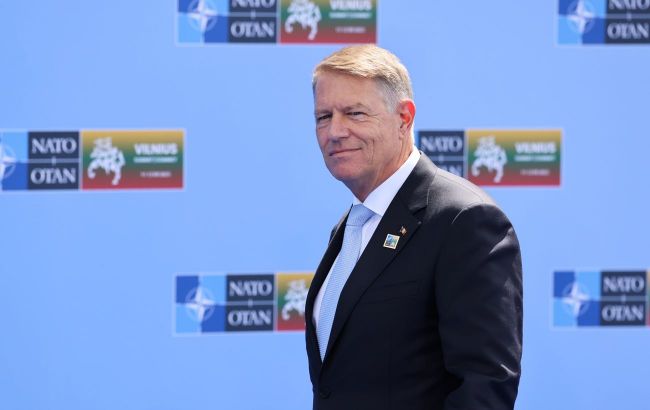Candidate from Eastern Europe running for top EU post
 Klaus Iohannis (Getty Images)
Klaus Iohannis (Getty Images)
Romanian President Klaus Iohannis aims to become the next President of the European Council. This position is likely to be vacated prematurely due to the unexpected announcement by Charles Michel that he will run for the European Parliament, according to Bloomberg.
According to agency sources, Iohannis is joining a small group of former EU leaders, including Mario Draghi from Italy and Xavier Bettel from Luxembourg. Their names have been mentioned as potential candidates for this position, which is one of the highest in the European Union. The Council President presides over meetings of the EU's 27 leaders and represents the bloc on foreign policy issues.
Michel's announcement has caused chaos in the process of allocating top roles in the EU - a complex system that takes into account the nationality and political affiliation of candidates. Debates have started several months earlier than planned. Usually, negotiations begin after European elections, which are followed by the selection of the President of the European Commission, the Council President, and others.
Draghi returned to the spotlight on January 10, meeting with leaders in Milan as part of his research for a report on European competitiveness prepared for the European Commission, fueling speculation that he may vie for a position in the EU. According to an official informed about his views, the former head of the European Central Bank is not interested in working for the EU.
Challenging negotiations
Iohannis's second term as President of Romania ends at the end of the year, and he is not eligible for reelection. He will face tough competition for this position if Ursula von der Leyen, the head of the European Commission, is re-elected for a second term, as both are members of the center-right European People's Party.
European elections will take place from June 6 to 9, further complicating the timing of personnel changes.
If Michel is elected to the European Parliament in June, he may resign from his current position in July, before his term ends in November. If an agreement on a replacement is not reached, Hungarian Prime Minister Viktor Orbán may temporarily assume this role, as his country will hold the EU presidency for six months as part of the rotation.
The future presidency of Hungary worries EU leaders and could serve as a strong incentive for reaching a compromise after the elections, especially considering Orbán's blocking of aid to Ukraine. He also questions whether the full-scale Russian invasion of Ukraine should be called a "war" and was the only EU leader to meet with Russian President Vladimir Putin after an international arrest warrant was issued against him for the abduction of Ukrainian children.
Bettel, the former Prime Minister of Luxembourg and current Minister of Foreign Affairs said on Monday on RTL that he is not a candidate at the moment and wants to remain in his home country.
To recall, European Council President Charles Michel announced that he is running as a Member of the European Parliament in the June European elections and will resign if elected, sparking discussions about his replacement. Central and Eastern European member states have long complained that top positions are too often given to Western Europeans.

